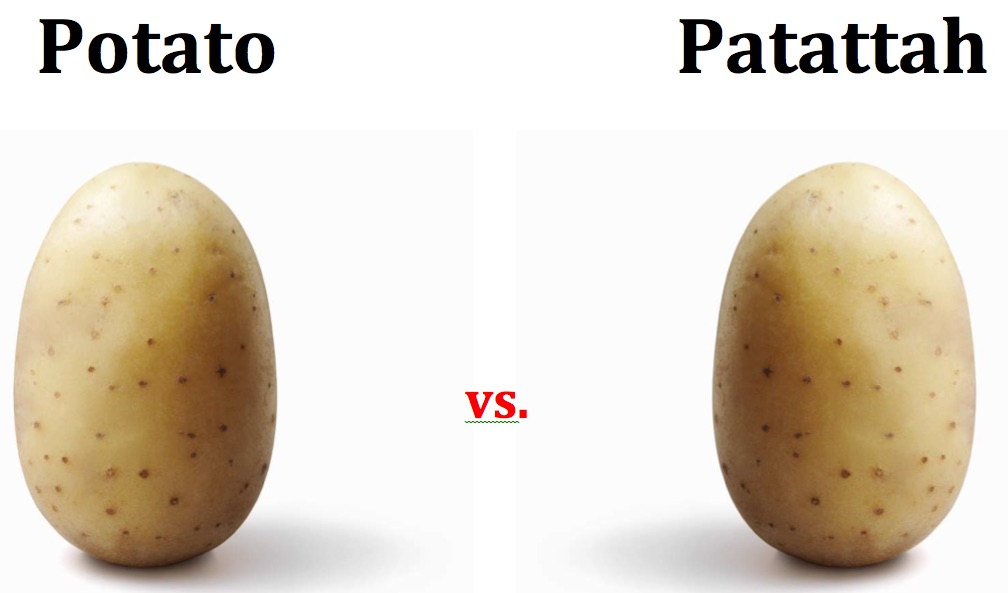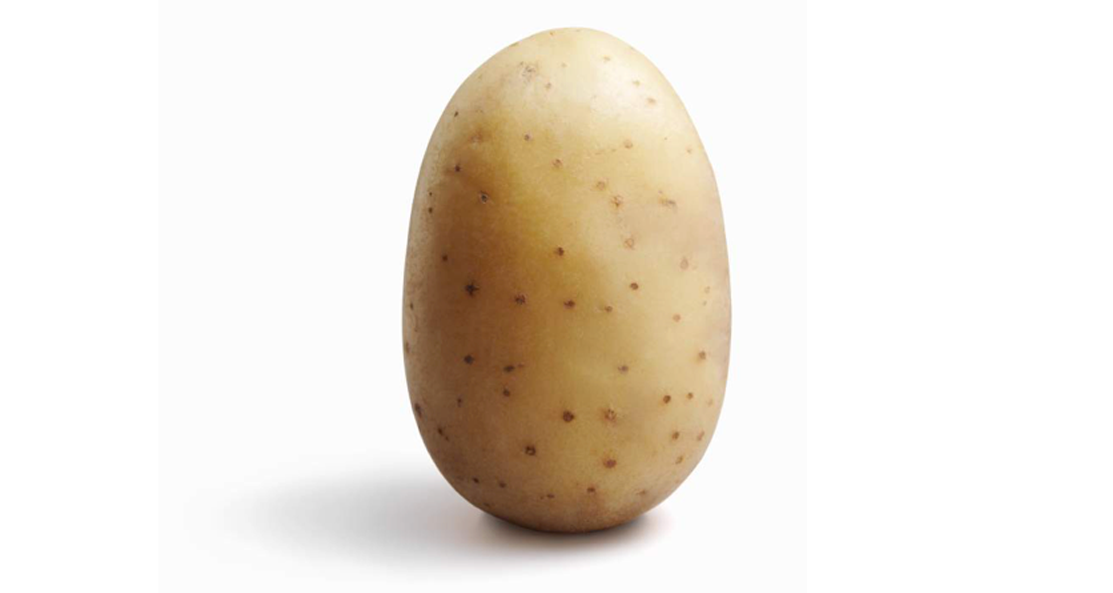
As I watched reports and read commentaries on the professional US athletes taking a knee during the playing of the national anthem, I was reminded of the lyrics to one of my favorite songs:
You say “potato.” I say “patattah”
You say “tomato.” I say creole, “tamayda.”
Oh let’s call the whole thing off.
The lyrics tell the story of a man who believes that he and his lover must call it quits because they don’t see eye to eye on almost anything. This highlights the same challenge that we in the states are facing with the national anthem delima.
There are those in the “potato” camp who believe that people must stand when the national anthem is played. To do otherwise disrespects the men and women who fought to preserve the freedom of this country and disrespects our American “heritage.” Then there are those of the “patattah” camp who are taking other physical positions, such as kneeling as an expression of peaceful protest or of locking arms in a show of solidarity with their kneeling teammates. They are protesting the treatment of people of color at the hands of police.
Of course, the response has been extremely polarizing (see here and here).
It might be tempting to ask, “Who’s right?” But is that even the appropriate question? For it implies that only one perspective has validity. And that simply is not the case. In addition to the two more common perspectives already identified, there are many additional perspectives. My goal in this article is to articulate a few additional thoughts and observations on taking a knee and the responses to it.
- It boils down to perspective.
Returning to the example of my favorite song, is it “potato” or “patattah”? That all depends on what our individual experience has been. Not only does our experience color our perspective, but it also colors our interpretation of others’ perspectives and their subsequent actions. America’s responses to recent current events – the Affordable Healthcare Act repeal effort, removal of Confederate monuments, election of President Trump, Black Lives Matter movement, to name a few – indicate that we have yet to learn that we can consider others’ perspectives without abandoning our own beliefs. As things are now, we’re having debates and arguments versus conversations around the topic.
- Is it really just about the flag?
And let’s be real, with stories like this, it begs the question: is the polarization really just about respecting the flag? Or does it speak to something deeper and more entrenched in our society – something about which we have yet to find the words nor developed the capability to discuss directly and productively. So instead of talking about the poor relations that exist between blacks and whites, we argue over whether or not the flag is disrespected. Such misdirection is a poor substitute for the life-bringing conversations we really need to be having.
- Our biases sometimes get in the way.
If we’re going to express outrage at people who disrespect the US flag and the brave men and women who have died to defend our freedoms, let’s spread the love. A little context: the US flag was first adopted as the country’s official flag in 1777. And in the Civil War, the war that resulted in keeping this nation together, 750,000 men died. So it’s interesting that people are up in arms about athletes “disrespecting” the American flag because they kneel at the anthem. But the outrage is much tamer in comparison when individuals exalt the Confederate flag as a piece of harmless American “heritage.” Yet that’s the flag that represents a movement that attempted to destroy the very Union the US flag, which they say is so sacred, represents. By the logic of the opponents of “taking a knee” at the anthem, the Confederate flag should be considered just as disrespectful. But why isn’t it? In short, because our biases blind us to our blindness. Hence, why we all need to have quality relationships with people who don’t think like us, look like us, and act like us. They can challenge us to re-examine our perspectives when our “group think” doesn’t quite click.
- Is there another interpretation of taking a knee?
Many opponents of taking a knee argue that it’s disrespectful. But in talking with my sister, she noted that kneeling seemed more reverential than standing. This journalist thinks so as well. But because American society has identified standing with the hand over the heart as the acceptable position to take during the playing of the national anthem, anything else is automatically condemned. We close ourselves off from learning and understanding why someone would even take a different position in the first place. And we can’t begin to consider that the very thing we condemn could be an expression of reverence for another individual. This creates much room for misinterpretation and misunderstanding.
- What’s the posture of my heart?
And let’s say I do take the external position that is deemed “respectful” (standing with my hand over my heart). That doesn’t mean the attitude of my heart aligns with that “respectful” external position. Internally, I could be raging mad and giving my fellow countrymen the proverbial finger. Similarly, I could be kneeling and extending that same finger. The conversations have been around the conformity or nonconformity to “correct” positions during the anthem. But another aspect to consider: regardless of the position I deem acceptable during the anthem, does my everyday life reflect that same position? Or do I live a life that contradicts the values my body position would say I endorse?
- Is standing a requirement?
And where is it written that one has to stand for the anthem? Exactly. Nowhere. Standing is a tradition that was unintentionally started in 1918. I am not advocating changing this tradition, but we need to recognize that traditions are not law. Individuals have the ability and responsibility to examine why they think and live as they do. Kaepernick has made clear that his actions are inspired by God, when he says “I think God guides me through every day and helps me take the right steps and has helped me to get to where I’m at. When I step on the field, I always say a prayer, say I am thankful to be able to wake up that morning and go out there and try to glorify the Lord with what I do on the field.” If God is saying it’s not a requirement for him to stand, then who are we to say that it is? Kaepernick is the one who will be held accountable for his choices, both in the here and now (no football job in 2017) and when he stands before God in eternity.
- Give the guy his props.
Whether or not you agree with Kaepernick and his peaceful protest, one thing you have to give the guy credit for: his conviction. His story has been in the news for over a year – and throughout that time he has remained steadfast in his position. Though it seems his stance has now cost him his job in an industry he loves. For most of us, once you start hitting our wallets and livelihoods, we conveniently decide to check our convictions at the door. Only time will tell how lasting an impact Kaepernick’s convictions will have on our country.
So again, I ask. Is it potato? Or patattah? To answer this question, I’ll return to my favorite song:
I say “pajamas.” You say “pajamas”
Sugar, what’s the problem?
O for we know we need each other so.
We’d better call the calling off off.
We need to realize that though a myriad of differences exists in the US, there are critical areas where we have common ground. Having an awareness, understanding, and appreciation of this common ground will help us realize that no single person or singular groups of people can make it on our own. All the calls to fire the players and boycott NFL games…yes, those actions may bring the players into external conformity. But the bigger issue of why they took a knee in the first place is never discussed or explored. And we continue in our merry facade of peace and unity while watching men catch pigskins on Sundays and Thursdays.
We need each other. And until we all come to embrace that understanding, we will be short-circuiting the great potential and true unity and peace of this nation.

